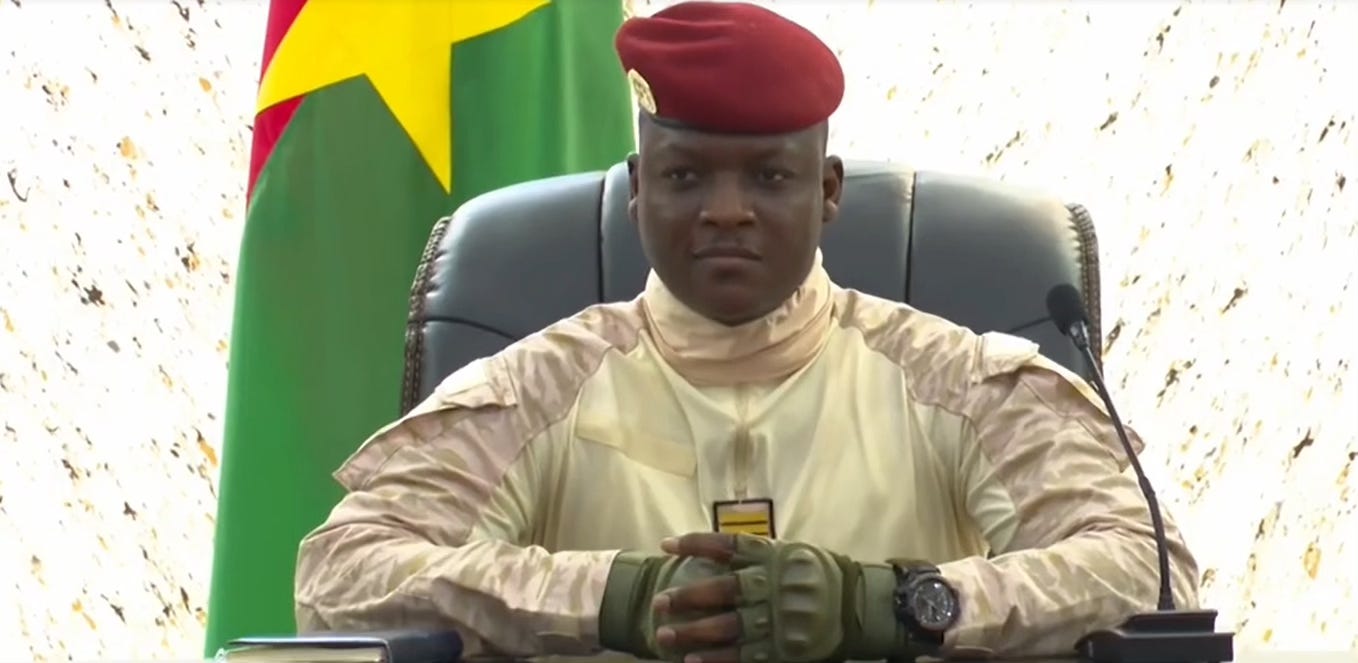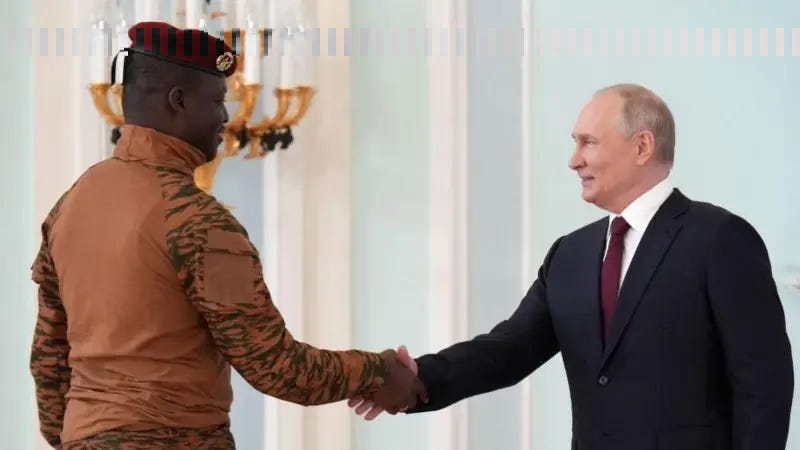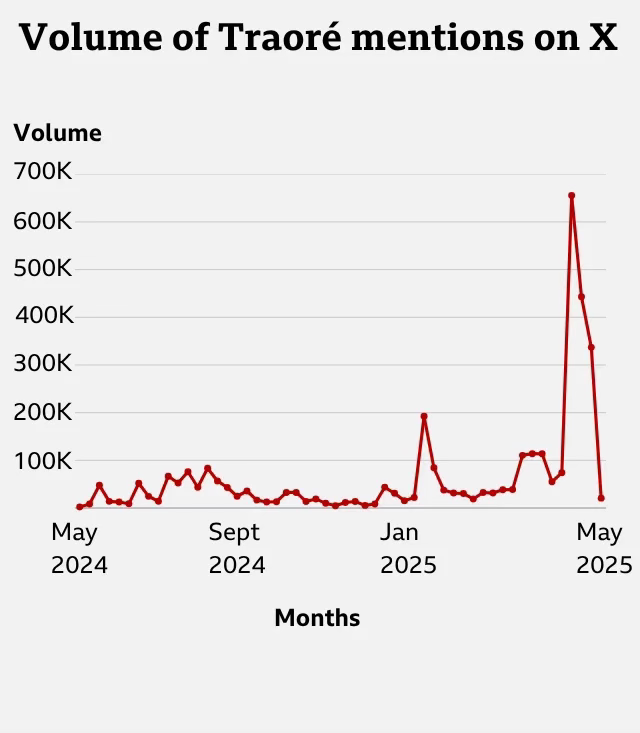Who is Ibrahim Traoré? - From Kéra to the Presidency of Burkina Faso
In the heart of West Africa, a young military officer has emerged a a symbol of radical and national sovereignty.
Captain Ibrahim Traoré, born on 14 March 1988 in Kéra, Burkina Faso, has swiftly ascended from a modest upbringing to become the President of Transition of Burkina Faso, captivating a nation and drawing international attention.
Traoré’s formative years were spent in Bondokuy, where he completed his primary education. He later attended high school in Bobo-Dioulasso, Burkina Faso’s second-largest city, where fellow pupils described him as “quite” and “very talented”. In 2006, he enrolled at the University of Quangadougou to study Geology. During his university years, he became involved in numerous student organisations, notably the Association of Muslim Students and the Marxist National Association of Students of Burkina Faso (ANEB). He graduated with honours, laying a good foundation for his future.

Traoré joined the military in 2009, serving in various capacities, including participation in the Mali war and the Islamist insurgency in Burkina Faso. His military career was marked by a commitment to national security and sovereignty. On 30 September 2022, capitalising on widespread dissatisfaction with the existing government, Traoré led a coup that removed interim President Paul-Henri Sandaogo Damiba. At just 34 years old, he became the world’s youngest head of state, assuming the role of interim President of Burkina Faso.
Since taking office, President Traoré has embarked on an ambitious agenda aimed at rewriting Burkina Faso’s political and economic landscape:
Economic Sovereignty: He established the state-owned Société de Participation Minière du Burkina to nationalise mining operations, with a focus in gold, ensuring the profits benefit local economies.
Financial Independence: Rejecting reliance on international financial institutions, Traoré’s administration has focused on clearing domestic debt and promoting economic discipline.
Agricultural Developments: The Agro-Pastoral Offensive initiative aims to achieve 70% food self-sufficiency by 2027, with large investments into agricultural machinery.
Infrastructure Projects: His government has launched the Postal Bank of Burkina Faso to enhance financial inclusion and introduced the country's first gold refinery.
Cultural Reforms: In a move to assert national identity, Traoré’s administration replaced French colonial-era court dress with traditional Burkinabé attire and adopted local languages as official languages, moving away from French.
President Traoré has also distanced the country from France in terms of foreign relations, adopting a closer relationship with Russia. In 2023, he reopened the Russian embassy in Burkina Faso after a 31-year absence, signalling a bold strategic pivot.
Regionally, Traoré has been essential in forming the Alliance of Sahel States alongside Mali and Niger. This confederation aims to promote regional collaboration and freedom.
Traoré’s leadership has gathered significant support, particular amongst the disgruntled youth, who reciprocate his anti-colonial movement and emphasis of self-reliance. His image has been boosted by a strong media campaign.
However, his tenure has not been without its criticism. Human rights organisations have raised real concerns about freedom of press and enforced conscription of so called “dissenters”. Despite Traoré’s efforts, violence within Burkina Faso has increased, with only 40% of the county under government control and millions either displaced or in need of aid.
Captain Ibrahim Traoré’s journey from small village boy to the President of Burkina Faso is representative of a broader desire for change across much of the continent of Africa. His bold reforms and change in foreign policy reflect a commitment to national sovereignty and economic independence. As Burkina Faso maps out the complexities of security challenge and governance, the effectiveness and longevity of Traoré’s policies will be closely watched, both domestically and internationally.
Sources:





